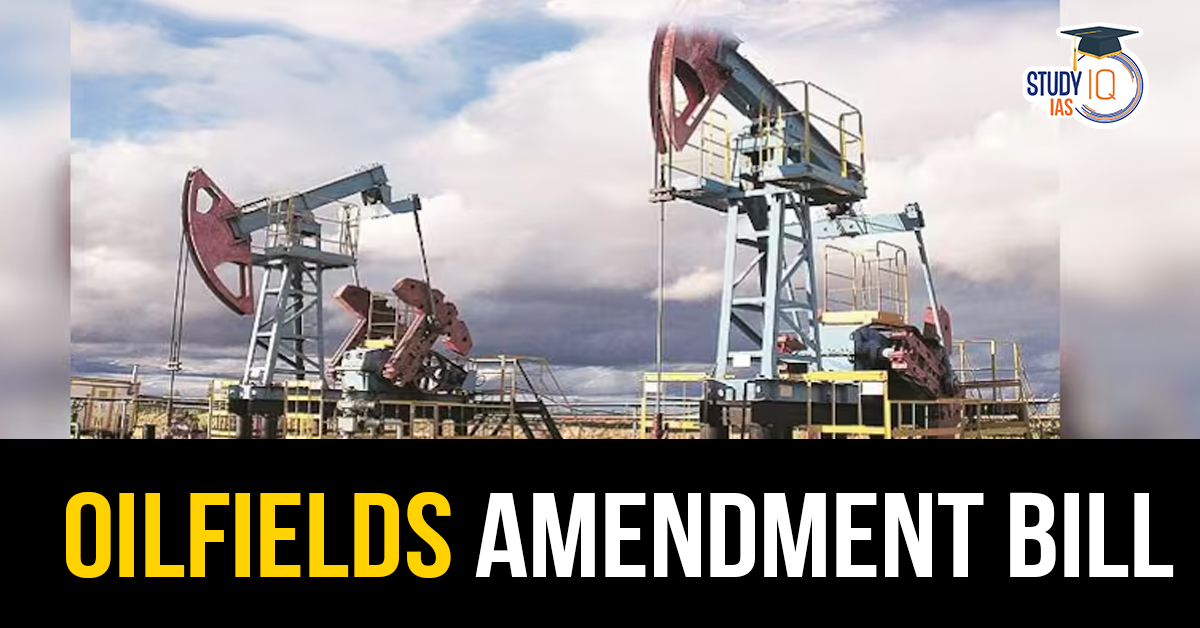Table of Contents
Oilfields Amendment Bill 2024
- The Oilfields Bill amends the Oilfields (Regulation and Development) Act of 1948, which originally governed both oil and mineral operations.
- The amendment aims to delineate the regulation of petroleum from mining activities and boost domestic production and reduce reliance on imports.
Key Amendments
Expanding Definition of Mineral Oil
- In the present act, petroleum and natural gas are the only two that have been defined as mineral oil.
- The amendment expands the definition to include any naturally occurring hydrocarbon, coal bed methane, and shale gas/oil.
- It also clarifies that the definition will not include “coal, lignite and helium occurring in association with petroleum or coal or shale.”
Introducing Petroleum Lease
- The Bill introduces “petroleum leases” as a replacement for “mining leases.” These leases cover activities like prospecting, exploration, development, production and disposal of mineral oils.
Expanding Centre’s Regulatory Powers
- The Act gives power to the Centre to make rules on matters such as the grant of leases, deciding the terms and conditions of the lease, conservation and development of mineral oils, methods for producing oil, etc.
- It further expands the Centre’s power by allowing it to make rules for leases to reduce greenhouse gas emissions, sharing of oil production and processing units, merger of leases and resolving disputes on leases.
Concerns
- Impact on State Rights: Opposition parties are arguing that reframing the Act’s focus from mining leases to petroleum leases could diminish state powers to tax and collect royalties from petroleum activities.
- Environmental Risks: The push for private sector involvement raises questions about environmental safeguards and reduced accountability.


 Linking Aadhaar with Voter ID Endangers ...
Linking Aadhaar with Voter ID Endangers ...
 Article 142 of Indian Constitution, Sign...
Article 142 of Indian Constitution, Sign...
 Pakistan-Occupied Kashmir (PoK): History...
Pakistan-Occupied Kashmir (PoK): History...





















